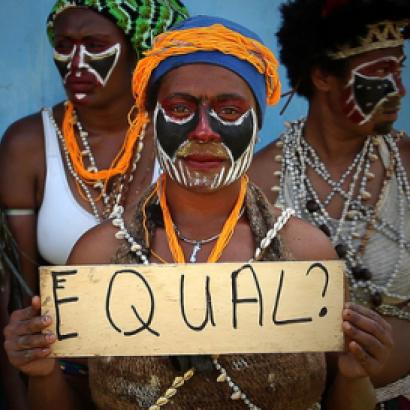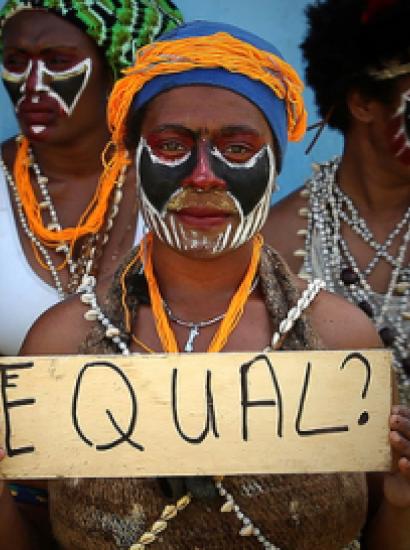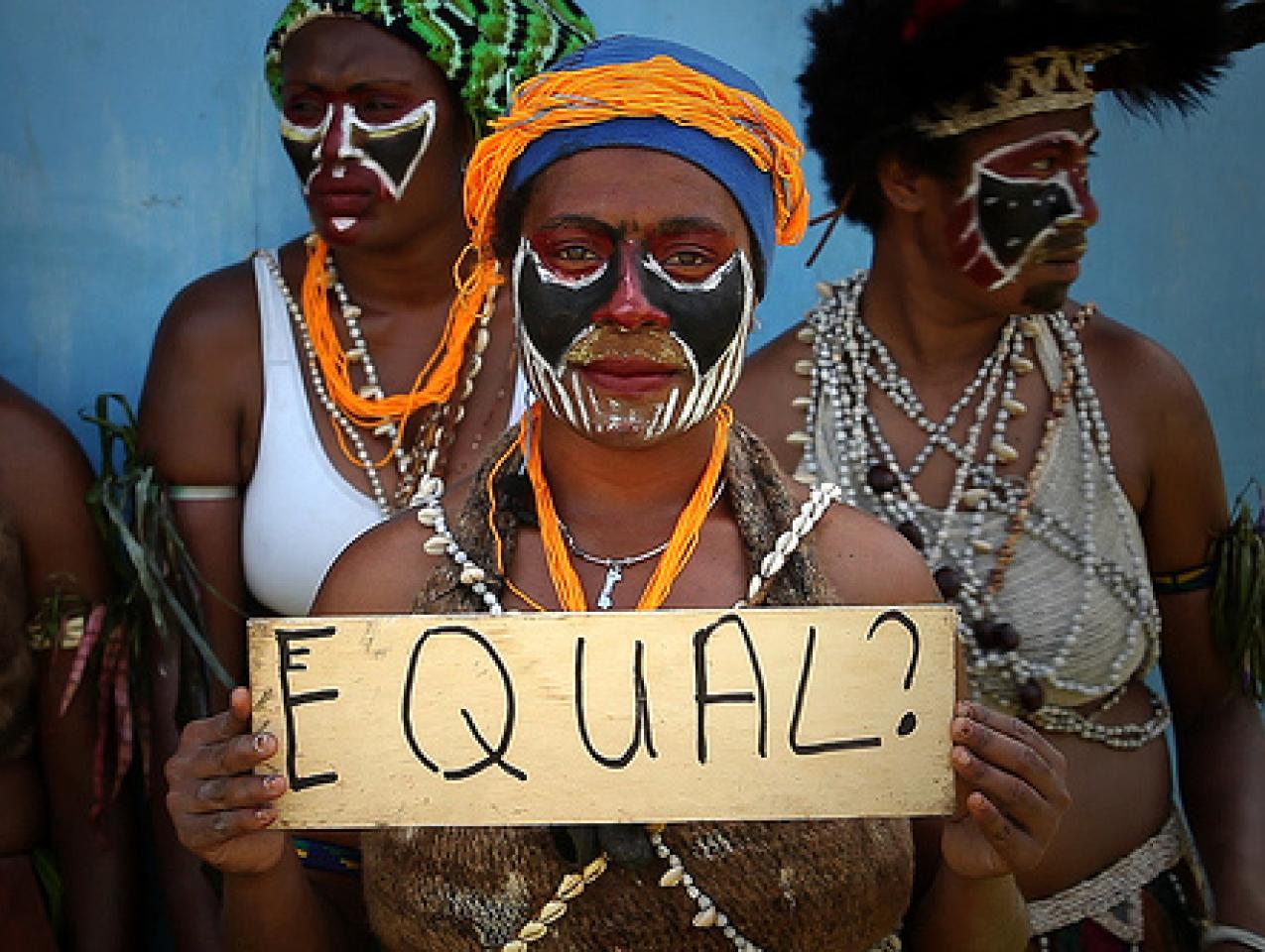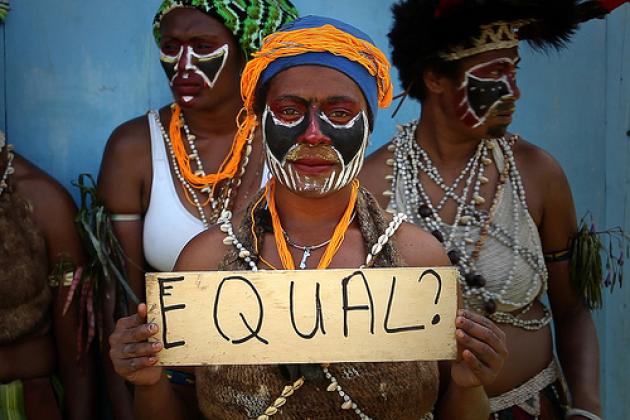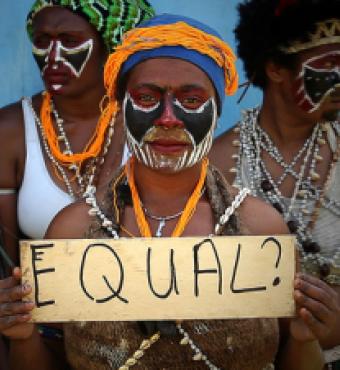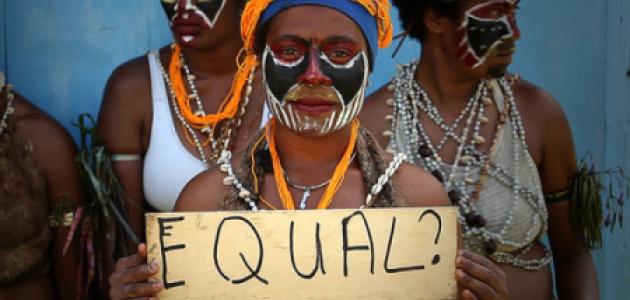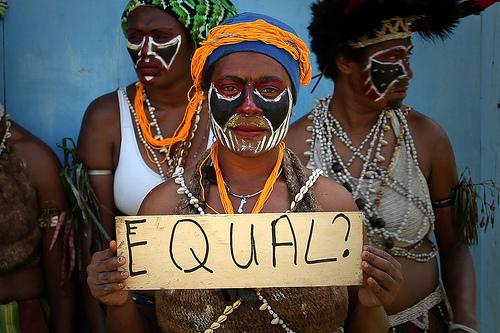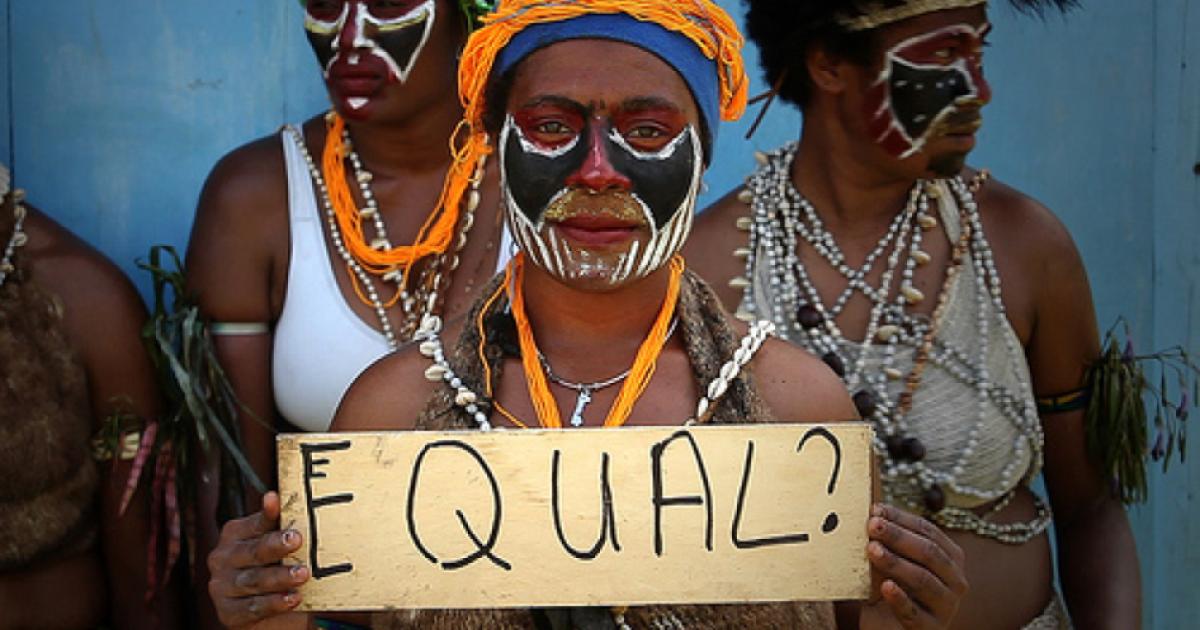- History
- Law & Policy
- Civil Rights & Race
Over the decades, academic scholarship, with its jargon and narrowness, has grown both impenetrable and unenlightening to general readers. Few academics even attempt to look at the big picture or to render their prose intelligible to the public at large. As a result, much contemporary scholarship requires intermediaries, popularizers, and translators to the broader public.
Jared Diamond, a professor of geography at UCLA, is one of the most successful and valuable of those intermediaries. His book Guns, Germs, and Steel argued powerfully that environmental differences—the availability of domesticable plants and animals and the biological consequences of dense populations living in close proximity to animals—gave European societies enormous early advantages that can explain their world dominance from the fifteenth century onward. In Collapse and other work, he has continued to explore the ways environmental factors affect the course of civilizations. His wide-ranging interdisciplinary approach is both rare and enriching.
A Tribal Mentality
Those achievements make it especially a surprise and disappointment to encounter in his latest work, The World Until Yesterday, a vanity project marketed as anthropology. In this book, Diamond draws from his extensive field research in New Guinea to share his views on the shortcomings of contemporary American society. Primitive approaches to social problems, he thinks, would better serve our society. For example, he argues for: dedicating more resources to mediation as an alternative to civil lawsuits, establishing “conventional monopolies” to smooth out trade fluctuations, deemphasizing competition and the desire for excellence among children, on-demand nursing for infants, spending more time talking to our children, devising new living conditions for the elderly, accepting that the gulf between rich and poor in the United States provides an explanation of the popularity of religion in our country, preserving language diversity, and ending obesity.
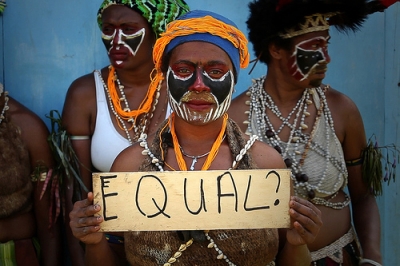
Papua, New Guinea. Photo credit: World Bank Photo Collection
At its core, the book is based on a fundamental contradiction. Diamond explains that the customs of primitive societies are not applicable to the characteristics of our society; then he proceeds to use those customs as the basis for recommendations for improving everything in our society from parenting to diet. He opens the book explaining that the defining characteristic of primitive cultures is that everyone knew each other, necessitating the repair of relationships as the principal objective of justice and the establishment of rules governing the treatment of outsiders. Yet he proceeds to spend the rest of the book arguing for the use of these tribal customs to our own society.
One of the best characteristics of Diamond’s previous work is his ability to explain information unknown to the reader simply and with fresh eyes. In The World Until Yesterday, Diamond uses that skill to much less success, rehashing details well-known to readers on topics ranging from warfare to the American justice system. This not only makes for tedious reading—did anyone buy Diamond’s book to have the O.J. Simpson trial recounted?—but also shows a simplistic understanding of many issues even general readers will be knowledgeable of.
By holding forth confidently on subjects on which he is inexpert, Diamond calls into question what we earlier believed of his erudition. For example, he states, “The French philosopher Jean-Jacques Rousseau speculated, without any evidence to back up his speculations, that governments arise as the result of rational decisions by the masses who recognize that their own interests will be better served under a leader and bureaucrats. In all the cases of state formation now known to historians, no such farsighted calculation has ever been observed.” That would come as a surprise to our founding fathers, as well as to any historian of the United States.
I likewise don’t imagine many historians of Europe would agree with Diamond’s claim that Sweden and Switzerland have avoided wars of late “because they now do have aggressive and far more powerful and populous neighbors (Germany, France, and Russia) which they could never hope to conquer themselves, and because they have successfully deterred those neighbors from attacking them by being armed to the teeth.” Nor would many economists agree that “if we older people keep working, we prevent our children’s and our grandchildren’s generation from getting jobs, as is happening right now.”
Those are small examples, but Diamond makes equally insupportable assertions that affect his main argument. In explaining the superiority of western militaries, he asserts, “traditional war leaders cannot issue orders for which the price of disobedience is court-martial.” Most traditional societies—as he himself argues in the section on legal proceedings—had powerful extralegal means of social enforcement like shaming, beating, exclusion, assignment of wives or spoils, which derive from the members all being known to each other. The Cheyenne and warrior cultures of the plains had quite sophisticated means of disciplining their combatants; any general discussion of primitive warfare ought to incorporate more than narrow legalistic constraints on behavior.
In the same vein, he ascribes the eventual defeat of most primitive societies to the fact that “they had to break off fighting in order to resume obtaining and producing food, while professional European soldiers could continue to fight.” But professional European soldiers had to develop means to attain water in the Llano Estacado, fight on horseback, and establish supply routes extending hundreds of miles during the Indian wars. They did so by smart emulation of the natives; the natives, however, did not innovate in ways that compensated for their inadequacies. It is a serious shortcoming of Diamond’s structural approach that he does not address questions of adaptation.
Some Insights and Some Filler
This said, Diamond does make some good points when discussing the effects of European contact on warfare among primitive societies. He emphasizes that with primitive societies “one should talk about chronic warfare, rather than a war with a specifiable beginning and cause.” The cause of such chronic warfare, he says, is the lack of centralized leadership with the authority to enforce its decisions about when wars terminate. He goes on to explore why it is that primitive societies so easily gave up warfare once peace was imposed by western conquerors, concluding that they quickly “had come to appreciate the biggest advantage of state government: the bringing of peace.”
It is a fascinating insight, coupled with a long, interesting excursion into the ways exposure to the West affected the incidence of violence in these primitive societies. Most surprisingly, the introduction of durable and calorie-intensive foods increased violence because they facilitated larger parties of warriors to fight longer and over greater distances. But that is, sadly, an aberration in The World Until Yesterday.
Most of Diamond’s examples are taken from his field research in New Guinea, and have the feel of outtakes he just couldn’t leave on the cutting room floor. Charts of “objects traded by some traditional societies,” maps of locales of primitive tribes from which examples are taken, an entire chapter on “the Dani war” (including a chart of “membership of two warring Dani Alliances”), inventories of different societies’ degrees of exclusivity in land use, a six-page disquisition on sources of information for primitive warfare, a table of traditional food storage around the world, proposed definitions of religion—these all feel like filler. Their relevance to the argument he is advancing is never established. Nowhere does he attempt to justify the examples he uses as definitive data, so they never rise beyond anecdotes.
Some of the writing is self-indulgent to the point of exasperation, such as, “Peti, father of the dead boy, asked Gideon, ‘Can I come into your office and talk with you’ (This and most of the other conversations that I shall relate took place not in the English language but in Tok Pisin. Peti’s actual words to Gideon were ‘Inap mi kam insait long opis bilong yu na yumi tok-tok?’).”
The worst fault of The World Until Yesterday, though, is that it is uninteresting. Diamond hasn’t asked interesting questions, and he hasn’t answered them in a way that transcends the specific information he provides. With The World Until Yesterday, Jared Diamond has achieved something I never believed possible: he has become a bore. A good editor should have persuaded him not to publish this book.








